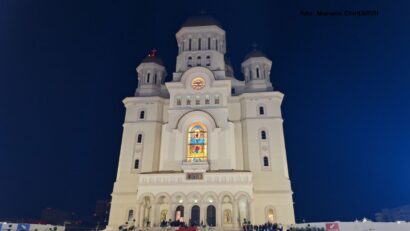Concrete solutions to security challenges
The recent meeting of the NATO foreign ministers in Brussels has been a special one due to the international political background it was held against.

România Internațional, 09.12.2016, 14:32
This is the first NATO meeting at this level after the US presidential election won by Donald Trump and the last one to enjoy the participation of John Kerry in his capacity as US Secretary of State. Allies approved a series of more than 40 measures to advance how the two organisations work together — including on countering hybrid threats, cyber defence, and making their common neighbourhood more stable and secure. NATO Secretary General Jens Stoltenberg.
Jens Stoltenberg: “In Warsaw in July, I signed a Joint Declaration with Presidents Tusk and Juncker. We said at the time that we had never done so much together. Now we are going to do even more together. We have identified over forty proposals in several key areas. They are pragmatic, but they are ambitious. On hybrid, we agreed on concrete measures to increase situational awareness. And to bolster our nations’ resilience. On maritime, we enhanced cooperation between Operations Sea Guardian and Sophia in the Mediterranean. Through logistical support and information sharing. On cyber, we will strengthen our mutual participation in exercises, and foster research. NATO and the EU will also work more closely together to build the capacities of our partners. And we have committed to pursue greater coherence in the development of our defence capabilities. So these are only some examples of how we now are strengthening the cooperation between NATO and the EU in a very concrete and pragmatic way.”
The security of Europe and North America is interconnected. A stronger NATO is good for the EU and a stronger EU is good for NATO. And strengthening this strategic partnership is more important than ever, said the Alliance’s Secretary General Jens Stoltenberg:
Jens Stoltenberg: “First, we all face new threats and new security challenges, which combine military and non-military means of aggression. Such as hybrid, cyber, terrorism. And neither NATO nor the EU has the full range of tools to respond to these challenges, so therefore we have to cooperate. Second, the EU is taking steps in strengthening European defence, which we welcome. It is important that these steps are complementary with NATO efforts. And third, the strength of the transatlantic bond is vital to our security. Strong ties between NATO and the EU bring North America and Europe closer together. “
The EU High Representative for Foreign Affairs and Security Policy, Federica Mogherini, has recently announced the initiative regarding the European Defense Fund and a series of measures aimed at helping the EU member states develop research and improve the way in which funds are being spent on common defence capabilities and on setting up an innovative and competitive industrial base in the field of defense.
After 2020 the European Commission plans to include in the Union’s multi-annual budget a yearly amount of 500 million euros earmarked for a research programme in the field of defense. As for a new NATO-Russia Council Meeting, the US Ambassador to NATO, Douglas Lute, who attended the meeting in Brussels, said it was likely to take place in the following weeks.
Pundits say the dialogue with Russia is essential, at least over issues regarding the transparent exchange of information related to various military drills, in the context of a high risk of accidents, given that, at NATO’s eastern border, there is an increasing number of troops, military technique and military drills. In November in Istanbul NATO’s Parliamentary Assembly called on the allied governments to increase the Alliance’s defense capabilities, maintain their firm stand on Russia and enhance cooperation in the fight against terrorism, with the deputies adopting several resolutions in this respect.
NATO must increase its deterrence capacity by increasing the number of troops in the Baltic countries, Poland and Romania by sending over military equipment and by investing in infrastructure so as to allow for the quick movement of NATO troops in case of emergency, the US congressman Michael Turner, former head of the US Parliamentary Assembly said.
In turn, the Parliamentary Assembly’s new president, Italian Paolo Alli, has asked for solidarity in the current security context while Jens Stoltenberg has called on the allied nations to increase their efforts to reach the set goal of allotting 2% of the GDP to defense. If the European allies and Canada reach the 2% threshold, this means 10 billion dollars will be made available, to improve NATO’s military capacity, Stoltenberg has explained.






























